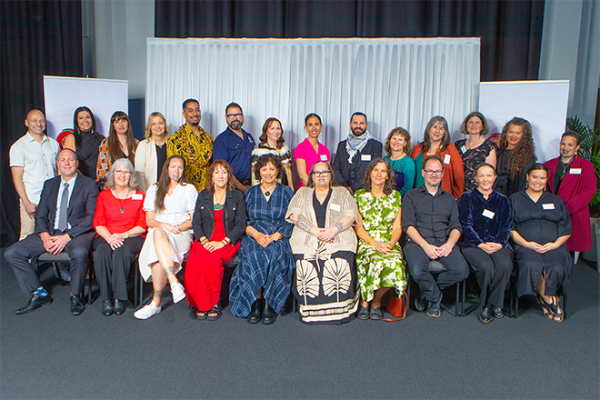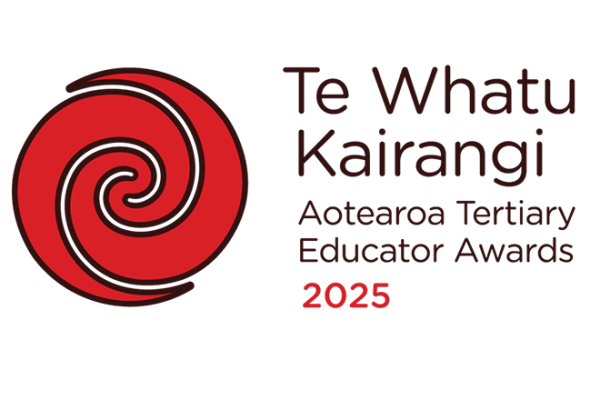Richard Hope
Creative strategies transform learning for diverse ākonga
Prime Minister’s Educator of the Year
and Te Whatu Kairangi General award winner: Achieving diversity and inclusion for improving outcomes for: Māori learners; Pacific learners; neurodiverse learners; and/or learners with disabilities
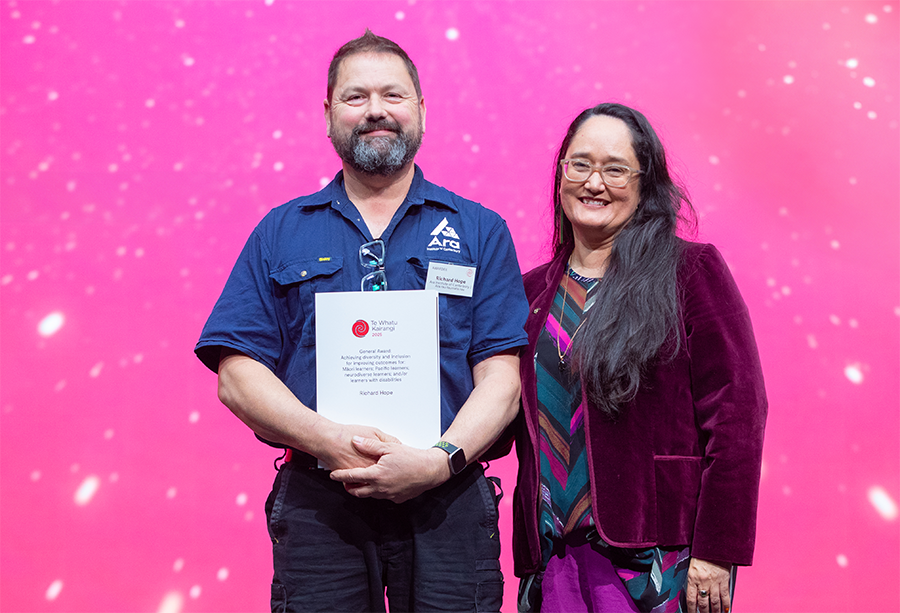
Senior Academic Staff Member, Automotive Trades, Ara Institute of Canterbury | Ara rau taumata rau
"When I identify a learning barrier, I create and implement a strategy to overcome it."
After working as an automotive mechanic for 25 years, Richard started teaching automotive trades at Ara Institute of Canterbury in 2019. He holds the tertiary teaching qualifications of the New Zealand Certificate in Adult and Tertiary Teaching (NZCATT) and the New Zealand Certificate in Adult Literacy and Numeracy Education (NZALNE) and is now a Senior Academic Staff Member. Richard teaches the New Zealand Certificate in Automotive Engineering (Level 3), a 9-month programme where ākonga (learners) prepare for employment and apprenticeships in the automotive industry, focusing on foundational knowledge and practical skills. Ara runs up to seven classes annually, each with its own tutor who delivers all the courses of the programme to up to 18 ākonga. The programme has open entry and is in heavy demand.
Enrolled ākonga are predominantly school leavers who are interested in working in the automotive industry, encompassing heavy diesel, light automotive, electrical/electronic, motorcycle, parts and accessories. Richard’s teaching experience involves automotive dual enrolment introductory courses, level 3 pre-trade, and Level 4 managed apprenticeship courses. Many of these ākonga have left formal education due to negative experiences and unsuccessful outcomes at school. The programme offers them a valuable opportunity to return to formal education and attain a qualification. A high proportion of his ākonga gain the New Zealand Certificate of Automotive Engineering. Results have risen to 100% over the last three years and, of those, 64% have gained apprenticeships or are working in industry.
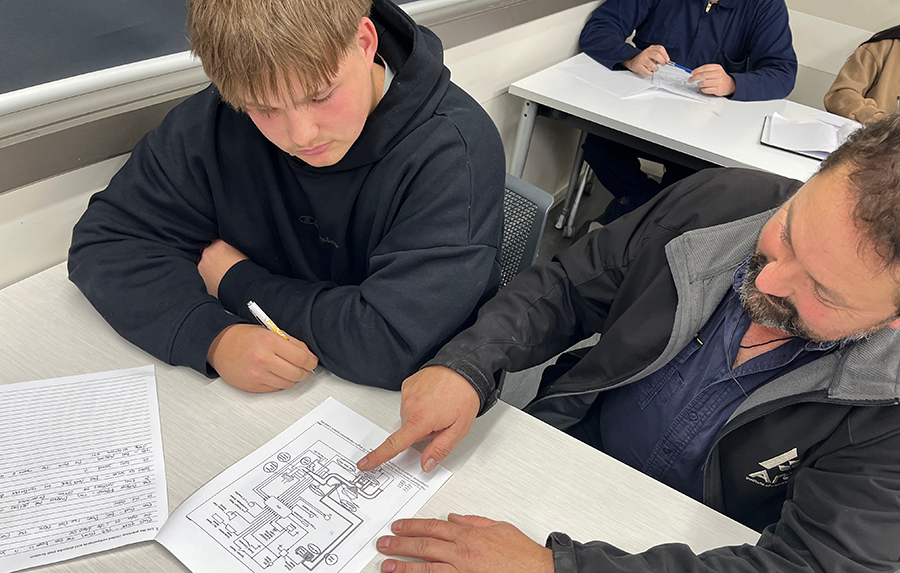
As Richard builds rapport with ākonga, he often discovers unacknowledged and unidentified learning disabilities and challenges. Many learners also come from difficult home environments, which can impact on learning or manifest in challenging behaviours such as class disruption and non-attendance. As Kaiako, Richard acknowledges pastoral care as a critical element in this environment. He believes education is a right, not a privilege, and it is his role to uphold that right and provide, as best he can, equitable education for all his ākonga. Through collaboration with colleagues, disability services, learning services, counselling services and WINZ, he identifies barriers to successful learning journeys and removes these by empowering and assisting the ākonga with resources that target their individual learning needs. This approach has resulted in the development of an online resource for kaiako to support deaf ākonga, translation of the Level 3 Certificate into te reo Māori, and development and introduction of a Professional Conversation method of assessment. These resources are available for colleagues and the institute to draw on in other teaching environments, enabling an inclusive educational context for all ākonga that is updatable and future focused.
In 2020, Richard saw an opportunity to increase his class diversity and a challenge to maintain an inclusive learning environment by welcoming an ākonga turi (deaf learner) in to his cohort. To enhance the learning of his new ākonga, he needed to understand deaf culture, and learn teaching strategies required for deaf learning. He did this by gathering information from support sections at Ara, the Deaf community, workshops he had facilitated, and participating in New Zealand Sign Language night classes. From this, he created a centralised online resource Teaching Deaf Learners for other tutors at Ara.
Although Richard regularly incorporates te reo Māori and principles into his lessons, when an ākonga whose first language was te reo Māori came into his class in 2023, he realised that to bring the ākonga into the whanaungatanga of the class, he needed to learn and understand more te reo Māori himself. He enrolled in a te reo Māori Level 1 night class and reached out to Ara colleagues for inclusive learning strategies. One of the requirements of this particular ākonga was to have assessments translated into te reo Māori. This involved 46 assessments and many technical terms, and proved to be no small task. Once completed, this became the only Level 3 automotive programme in the country able to be assessed in te reo Māori and was recognised by the multimedia news station TahuFM, which filmed the ākonga and Richard interacting in the learning environment.
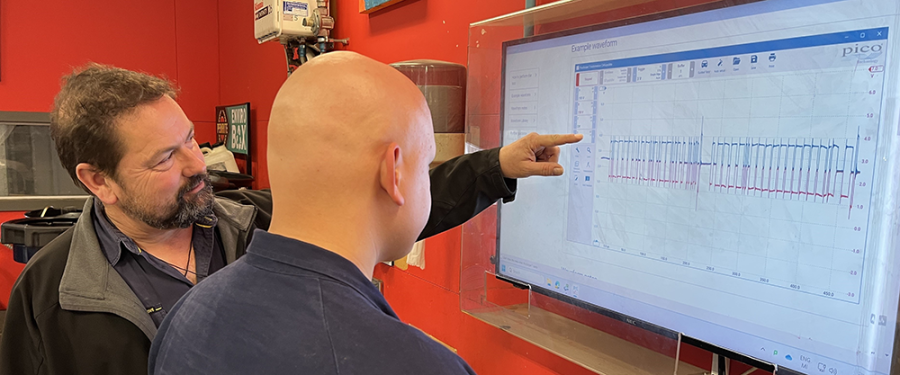
It became evident that this ākonga also had severe literacy and other challenges. They were gaining the knowledge required to complete the programme but were unable to articulate that knowledge in a formal written assessment situation, even with reader-writer assistance. This difficulty was exacerbated by a lack of reader-writers fluent in te reo Māori. Richard made enquiries about different assessment methods which might utilise verbal interactions and settled on a system of Professional Conversations (as described by Cole 2023) and translated the programme’s assessments into a suitable format. This proved a much more effective means of assessing ākonga progress than the usual system and gave the ākonga a much better chance at achieving programme completion.
Richard’s classroom management approach involves developing whanaungatanga amongst the ākonga from day one. This is inherently inclusive and generates a culture of empathy and respect amongst ākonga, nurturing the development of a cohesive class. He finds this approach is self-supportive, and learning outcomes progress rapidly, as distracting behaviours tend to be moderated amongst the ākonga themselves. He helps his ākonga establish a want or need to learn by linking content to real world situations. Employing humour and allowing banter opens communication pathways for informal formative assessment and the opportunity to normalise revision.
He encourages questioning by modelling open, closed and reflective questioning. Rather than solely imparting knowledge, he elicits it from the ākonga themselves, encouraging conversation and presenting consensus to the class, thus supporting all ākonga to be contributors and collaborators in building the class kaupapa (culture).
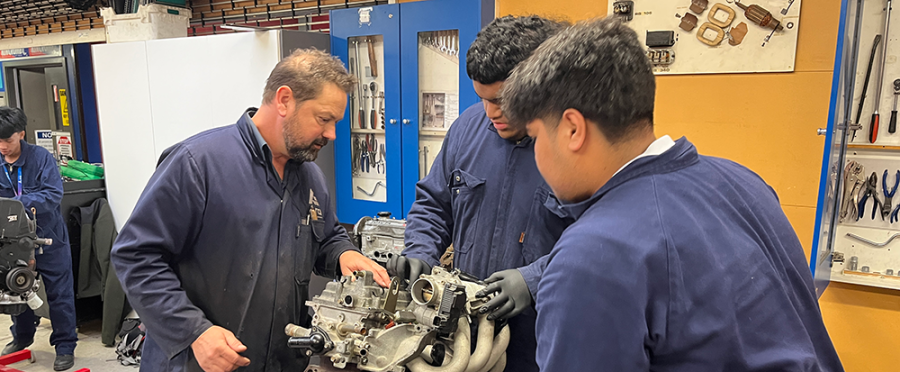
Ongoing and consistent observation of the ākonga in the classroom setting is crucial to Richard’s monitoring of the development of relationships and establishing levels of knowledge and skills attainment. He methodically checks in with each ākonga and elicits their levels of understanding and this influences the structure of his lessons. Richard feels invested in the future of his ākonga and makes a point of staying connected with them upon completion of the programme. Ākonga regularly make contact, seeking advice on difficult projects and finding contacts in industry. He steers them towards career opportunities as they arise and gives guidance in the technical arena.
Richard believes that developing ākonga who are empowered and engaged in the process of learning is critical to building resilient people who will flourish in society today, and in the future.
“Ehara taku toa I te toa takitahi, engari he toa takitini.” - No one gets there alone.”
Listen to Richard Hope speaking to Emile Donovan from Radio New Zealand

